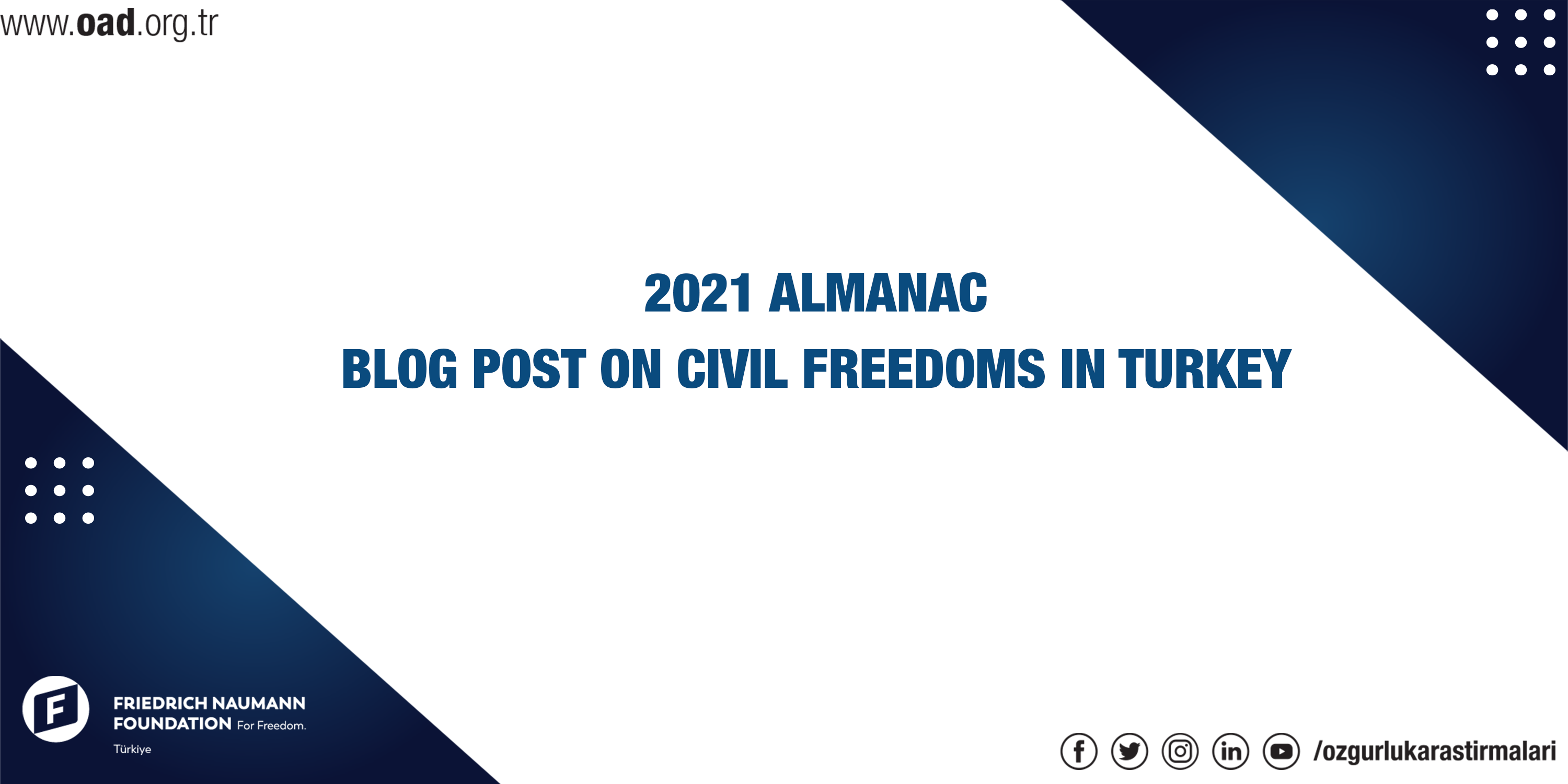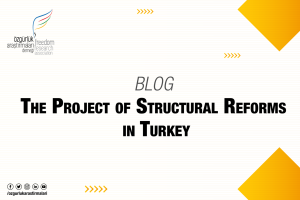Our report titled “2021 Almanac: Rule of Law, Democracy, Social and Economic Freedoms in Turkey” where we, in cooperation with Freedom House, compiled the work from the Freedom Observer bulletins was published in 2022. These bulletins’ topics consisted of the most compelling events in the field of rule of law, democracy, social and economic freedoms and civil society in the years 2020-21. This blog will compile the key events that occurred in Turkey in terms of civil freedoms and offer a perspective unique to the year 2022.
Turkish democracy has been in decline for the past fifteen years at an unprecedented rate. This regression and Turkey scores of various international indexes clearly demonstrate this situation. When Freedom House’s 2020 and 2021 reports are examined, one of the titles in which Turkey continues to be in the category of non-free countries, is far behind in the freedom rankings, and gets the lowest score, is “for opposition politicians, members of civil society organizations, independent journalists, and those who criticize foreign policy. It is seen that there are practices such as prosecution that harm democracy and civil liberties”. This is proof of the existence of a deep crisis in civil liberties.
Turkey, where it is possible to observe situations where very basic rights such as freedom of assembly and demonstration, freedom of association and freedom of expression are violated, has been dragged into a deep crisis from which it is almost impossible to get out. The ongoing indefinite bans on the freedom of assembly and demonstration, the stigma of civil society actors, police violence and impunity, administrative and legal harassment of peaceful demonstrators, serious restrictions on the freedom of assembly and demonstration have created grievances affecting almost all layers of society. Unfortunately, the violations regarding the use of these rights continued in 2022, and various efforts were made to prevent the freedom of expression, assembly and association, especially of women, LGBTI individuals and other communities that are not accepted by the government.
Tüm dünyada yaşanan COVID-19 pandemisi ise bu durumu perçinlemiş; özellikle otoriter devletler haklara yönelik kısıtlamalar ve ihlalleri, pandemi ve halk sağlığı adı altında meşrulaştırmaya çalışmıştır. Türkiye özelinde ise bu durum açıkça tecrübe edilmiş; çeşitli etkinlikler ve yürüyüşler halk sağlığının korunması kapsamında iptal edilmiştir. Ancak bu kararlar, herkes için geçerli olmamıştır. 1 Mayıs, Onur Yürüyüşü gibi etkinlikler yasaklanırken aşı karşıtlarının mitingi, AKP tarafından düzenlenen mitinglere onay verilmiştir. İşin diğer ilginç yanı ise AKP’nin makbul vatandaş statüsünde yer almayan gruplara yönelik ihlaller ve kısıtlamalar, istisnai denilmeyecek ölçüde olup bu uygulamalar sistematikleşmiştir.
The COVID-19 pandemic, which has been experienced all over the world, has reinforced this situation; In particular, authoritarian states have tried to legitimize restrictions and violations of rights under the name of pandemic and public health. In the case of Turkey, this situation has been clearly experienced; various events and marches have been canceled as part of the protection of public health. However, these decisions did not apply to everyone. While events such as May 1, Pride Parade were banned, rallies of anti-vaccine and rallies organized by AKP were approved. The other interesting thing is that the violations and restrictions against groups that are not in the AKP’s acceptable citizen status are not exceptional, and these practices have become systematic.
It should be noted that the complete disregard for constitutional obligations and international commitments in Turkey continues to have a negative impact not only on civil liberties, but also on law, democracy, governance, economy, investment and many more. In all this negative situation, the prescription that should be applied is to return to international democracy standards, law and democracy as soon as possible.





